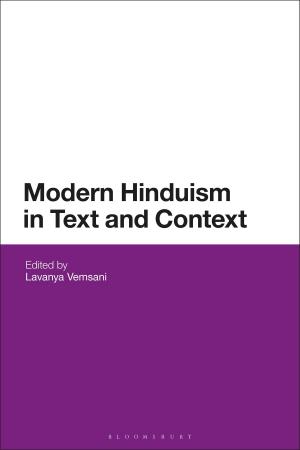Political Islam in Post-Revolutionary Iran
Shi'i Ideologies in Islamist Discourse
Nonfiction, Religion & Spirituality, Philosophy, Social & Cultural Studies, Social Science| Author: | Majid Mohammadi | ISBN: | 9780857736789 |
| Publisher: | Bloomsbury Publishing | Publication: | May 5, 2015 |
| Imprint: | I.B. Tauris | Language: | English |
| Author: | Majid Mohammadi |
| ISBN: | 9780857736789 |
| Publisher: | Bloomsbury Publishing |
| Publication: | May 5, 2015 |
| Imprint: | I.B. Tauris |
| Language: | English |
In the wake of the Iranian Revolution of 1978/79, the regime that took power sought to establish a form of government modelled on a particular understanding of political Islam. And since this revolution, Shi'i Islam has been used in various ways to justify political activity, both by those in government and those in opposition. As a result, outsiders often see 'Islamist ideology' in Iran as a monolith: unchanging and uniform. But as Majid Mohammadi shows in this book, the field of Islamist discourse is actually extremely wide, varied and in constant flux. By charting the central concepts and nuances of the ideological map of post-revolutionary Iran, he demonstrates how Iranian clerics, religious and secular intellectuals, and political theoreticians and activists have responded to cultural, political and social transformations since the revolution. With analysis of key thinkers such as Ali Shari'ati, Ayatollah Khomeini, Mohammad Taqi Mesbah Yazdi and Abdolkarim Soroush, this book is a comprehensive account of the diversity of Islamist ideologies in Iran, and how they interact with political reality.
In the wake of the Iranian Revolution of 1978/79, the regime that took power sought to establish a form of government modelled on a particular understanding of political Islam. And since this revolution, Shi'i Islam has been used in various ways to justify political activity, both by those in government and those in opposition. As a result, outsiders often see 'Islamist ideology' in Iran as a monolith: unchanging and uniform. But as Majid Mohammadi shows in this book, the field of Islamist discourse is actually extremely wide, varied and in constant flux. By charting the central concepts and nuances of the ideological map of post-revolutionary Iran, he demonstrates how Iranian clerics, religious and secular intellectuals, and political theoreticians and activists have responded to cultural, political and social transformations since the revolution. With analysis of key thinkers such as Ali Shari'ati, Ayatollah Khomeini, Mohammad Taqi Mesbah Yazdi and Abdolkarim Soroush, this book is a comprehensive account of the diversity of Islamist ideologies in Iran, and how they interact with political reality.















